Young Sourav Chatterjee has recently embarked on his career of interest as a Scientist at the prestigious Raman Research Institute, working on the secure communication project with ISRO. We caught up with the IIITH alumnus who believes that it was his highly unusual curriculum and experience garnered at the Institute that shaped his career.
That esoteric subject called Quantum Technology
“It was not like I wanted to be a quantum information scientist from the beginning of my career”, says Chatterjee who has a diverse background in Physics, Mathematics, and Computer Science. “It was more like an Age of Empires game where everything is dark at the beginning and once you progress deeper into playing the game, the elements start moving forward, the map becomes clearer, and you start seeing the holistic picture.”
Sourav Chatterjee’s research in quantum communication uses the laws of quantum physics to protect confidential data. He explains that when we go into the miniscule nature of objects, like in the atomic and subatomic scales, that is where its quantum description becomes more important. In the case of light, the smallest particle is a photon and in the case of sound, it’s a phonon. “While classical theories only become valid at larger macroscopic scales and quantum theories are required to explain the mechanics at the microscopic level, where the boundary lies between them is still an open question”, he adds.
A story of opportunities seized and instincts followed
The quantum scientist weaves a tale for us from the perspective of his career in the emerging domain. “It’s a bit tricky. I technically belong to the UG 2010 batch”, says the doctoral scholar when quizzed about his batch. Chatterjee was a Post B.Sc. dual degree student with a B. Tech. in Computer Science Engineering (CSE), along with MS by research in Computational Natural Sciences (CNS) at IIIT Hyderabad.
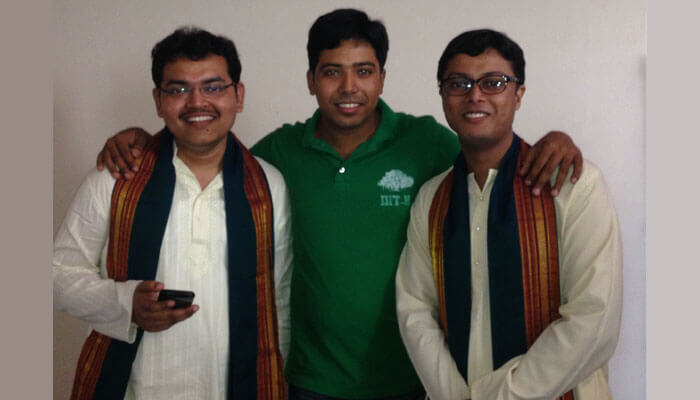
Armed with a B.Sc. in Physics from Calcutta University, the Honours student joined IIIT Hyderabad for the dual degree program. “When I had just joined IIITH, it was Prof. Harjinder Singh who gauged my interest and suggested quantum information and computation and gave me a book to read”, says Chatterjee, who went on to choose courses in classical cryptography and secure information transfer. A significant course on Principles of Information Security offered by Prof. Kannan Srinathan would turn his interest into a long-term passion. “In my 3rd year, Prof. Indranil Chakrabarty showed me how to do research in quantum information, and I was hooked”, confesses the scholar. During his tenure, for over 2-3 years, he also worked closely with Prof. Venkatesh Choppella, Prof. Abhijit Mitra, and Prof. Tapan Kumar Sahu in the popular Virtual Labs (a MHRD Project) as a research assistant. Sourav completed his B. Tech. in the fall semester of 2013 and MS in 2015, and in-between he worked for a year as an iOS app developer with Xenovus, a software company in Hyderabad.
Shortly after, he was accepted into the Ph.D. program in the prestigious Max Planck Institute for the Science of Light in Germany. The Max Planck society is one of the foremost organizations for fundamental research with 35 Nobel prizes awarded to their scientists till date. It was here that Sourav got his first exposure and training on the state-of-the-art technology based experimental research.
After completing his Ph.D. work, the scholar returned to India to join the Raman Research Institute as ‘Scientist C’ on a collaborative project with the UR Rao Satellite Centre of the Indian Space Research Organization on satellite-based secure quantum communications. The QuEST project under Principal Investigator Prof. Urbasi Sinha aims to securely distribute keys, over large distances by using satellite technology, for encrypting messages exploiting the principles of quantum physics.
A Path less trodden
During his academic career, Chatterjee had three affiliations as a Ph.D. candidate at the Max Planck Institute and the School of Advanced Optical Technologies (SAOT). His unusual academic trajectory includes 12 workshops, 10 publications, a spot on the Dean’s Merit List for Research and Academic awards at IIITH and a SAOT fellowship. Recently, the young scientist won the World Skills International Online Competition 2020 in Quantum Technology Competence at the BRICS Skill Camp, organised by the Russian Quantum Center at Moscow, under Prof. Sinha’s mentorship.
Chatterjee believes that learning moments during the IIITH program, like the summer projects and international conferences that he participated in, provided traction for his academic goals. “I had the opportunity to present my work at various international conferences on quantum information and computing hosted by IISC Bangalore and IOP Bhubaneshwar, as well as The Asian Quantum Information Science Conference, hosted by The Institute of Mathematical Sciences (IMSc) Chennai”. He has co-authored research publications in reputed international journals of the American Physical Society and the European Physical Society.
Why you should be looking at Quantum technology
“There is a race for the commercialization of quantum technology worldwide and if students are offered more courses aligned with the implementation side of quantum information like quantum optics based quantum information, it might become a viable career option for them in the near future”, believes Chatterjee. Quantum cryptography, the security part of the quantum communication is presently Chatterjee’s principal area of work. “What we do is experimental realization that bridges the gap between theoretical prescriptions and its commercial viability”, he observes. “The current race is focused on performing proof-of-principle experiments to understand how efficiently concepts can be implemented. Once the fundamental demonstrations are successful, companies will take it up for productization.”
Happy streets, fun moments and tough research on campus
Sourav Chatterjee was among the first students of Prof. Indranil Chakrabarty to graduate from IIITH, with quantum information. He maintains that “the rigorous curriculum and varied coursework made us versatile in whatever we attempted. Thus, when I started learning something novel like experimental quantum optics, which I had no prior knowledge about, I was not scared to face it, because of my IIIT training that prepped me in research concepts from the scratch and to reach deep into the subject within a very short period of time”.
Some of Chatterjee’s most cherished memories at IIITH revolve around the Old Boys Hostel (OBH), living with likeminded folk; sharing ideas, coming up with new projects and discussing them with advisors who would encourage you to engage in new problems. “The versatility of the courses that IIITH offers, both in depth as well as in breadth, made life really enjoyable. You could combine your expertise in disparate fields and make a meaningful career, an option that isn’t freely available in other institutes”, he maintains.
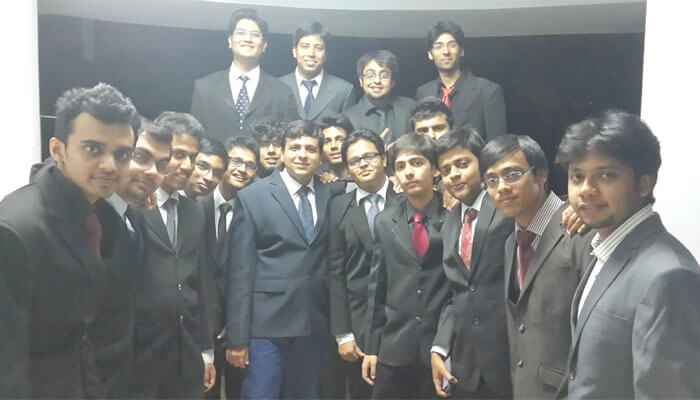
Whether it was donning the role of Purohit at the Saraswati puja or as a student academic council member, it was a memorable tenure on campus. Sourav has a wide circle of friends, especially his ‘wing-mates from OBH’ and the then Ph.D. students whom he considers his lifetime friends. He took his sunshine demeanour with him abroad, as a member of hbar Omega, Germany, the student chapter of the Optical Society of America (OSA), where he volunteered at various public awareness outreach programs on Optics.
Family and other stress-busters
Sourav Chatterjee credits his Guru’s blessing and family’s attitude towards higher education for being a major influence on him. Born in the steel city of Bokaro, Chatterjee spent his growing years in Calcutta. His parents and sibling are all highly erudite, with his father (Retd.) AGM of SAIL being a Ph.D. in Geochemistry. His wife Ankita is a clinical psychologist by profession who is also currently pursuing her Ph.D.
The rush and tumble of a regular day on campus helped the scholar to achieve a modicum of work-life balance. “During our college Fests, we would attend classes during the day, work on cultural activities and preparations in the night, and still make it for an exam the next morning”. Chatterjee credits his strong spiritual bent of mind with having a deep influence on his career choices. “A bit of meditation is one thing that I often take refuge in when there is stress. Exploring within and finding a spiritual connection or discussing it with a friend or family helps me”, says he. His other stress-busters were a game of badminton or cricket on campus.
Chatterjee muses on his favourite Robert Frost verse. ‘Two roads diverged in a wood, and I took the one less travelled by, and that has made all the difference’.
“I cannot comment on what I aim to do next. But as I continue to do the things that I’m currently doing to the best of my ability, life will unveil itself and the next opportunity will become clear to me, paving my way into the future”.
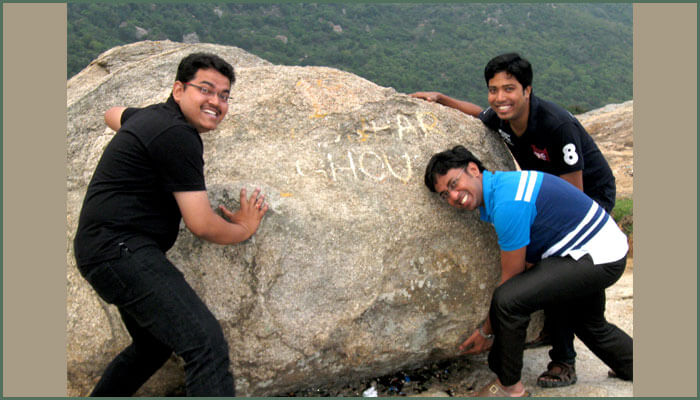
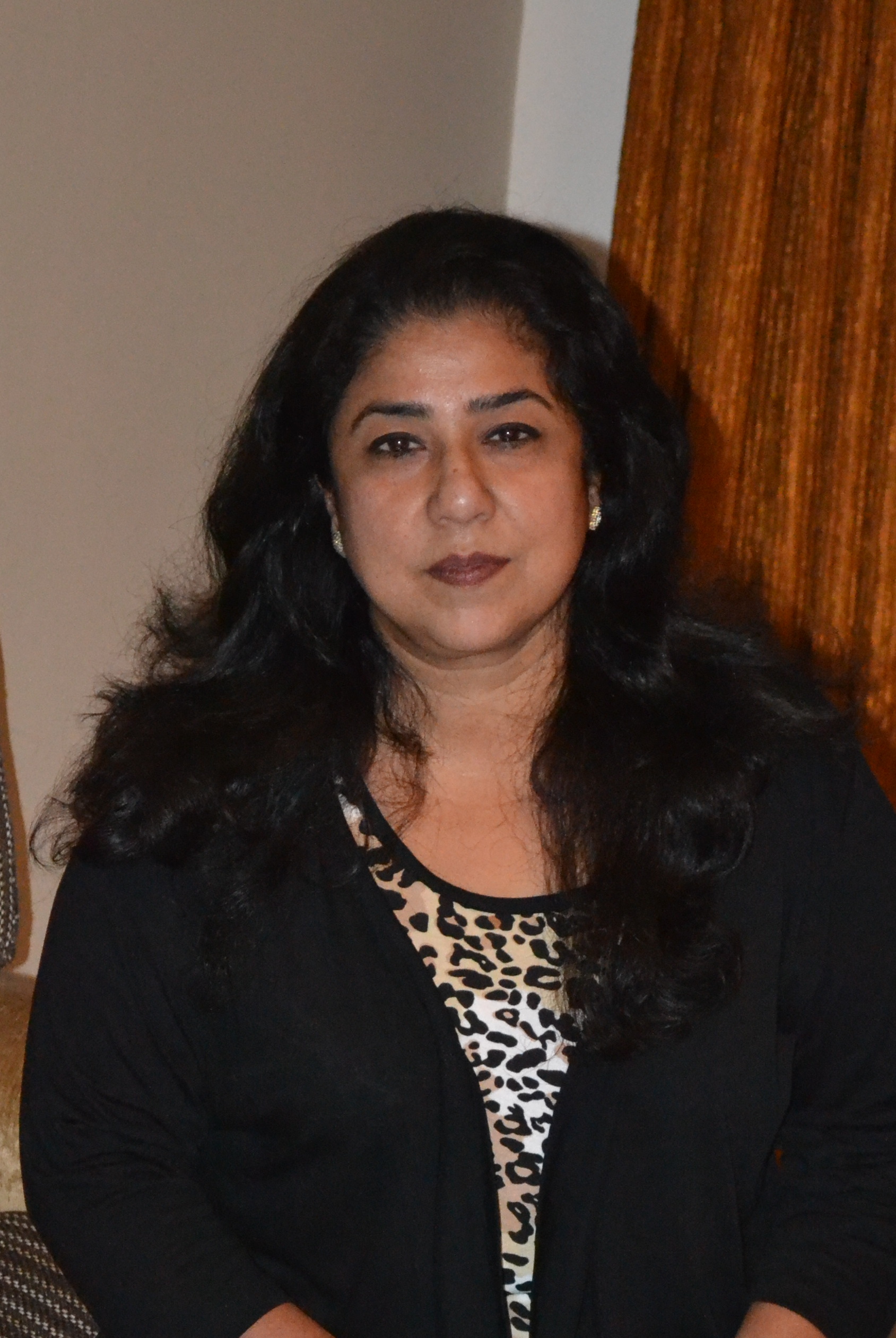

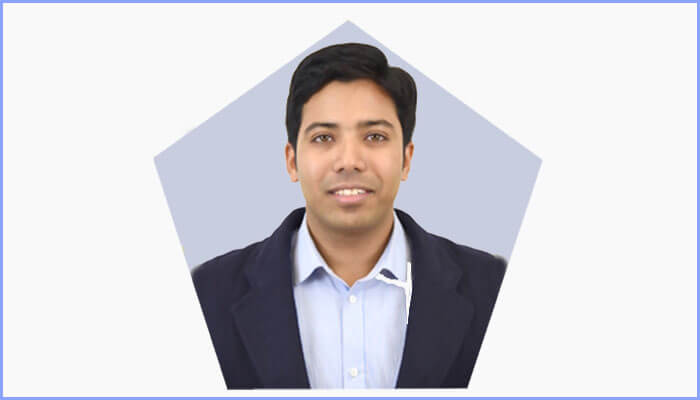
Next post